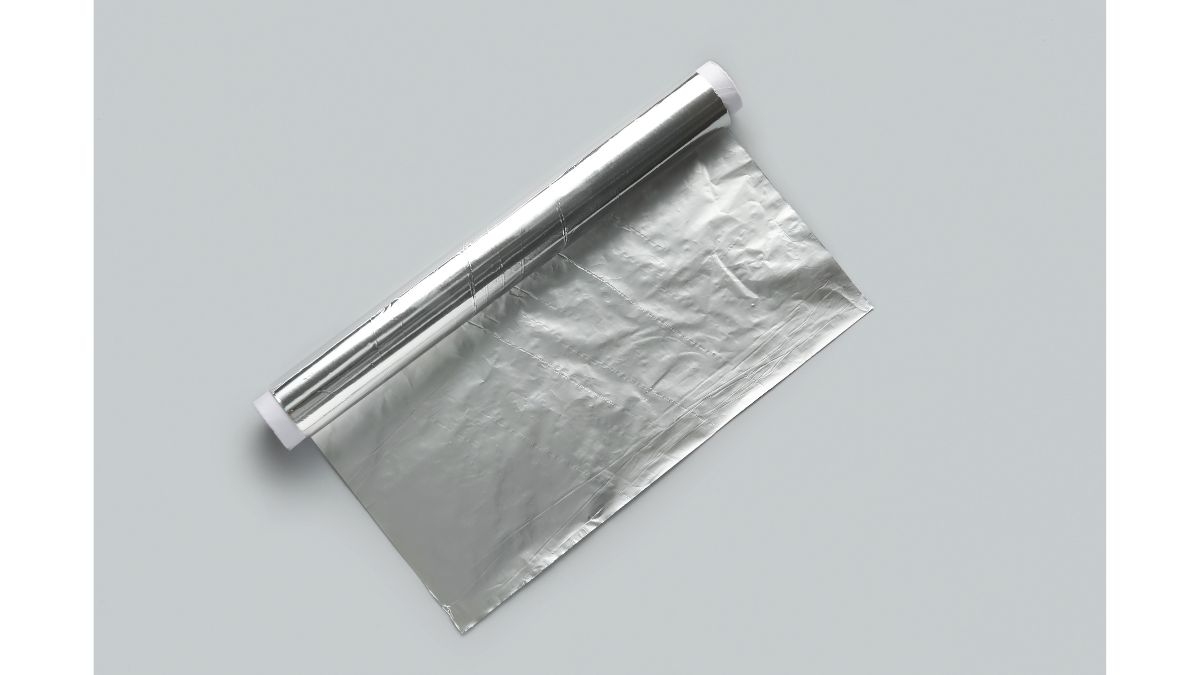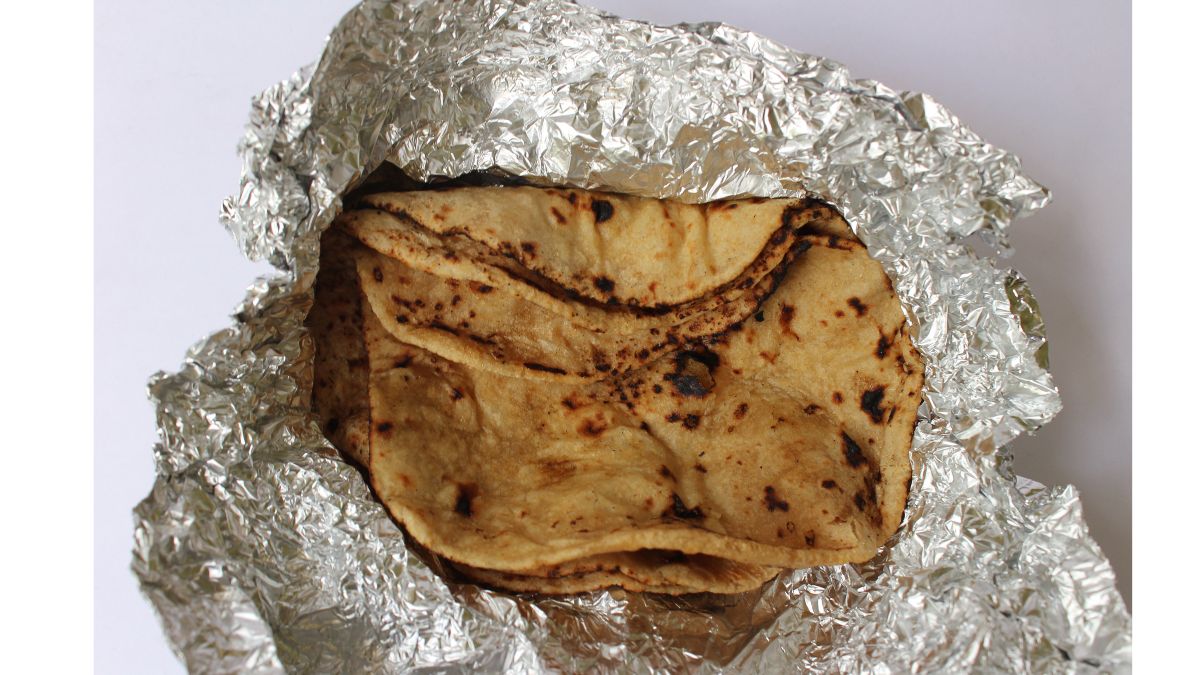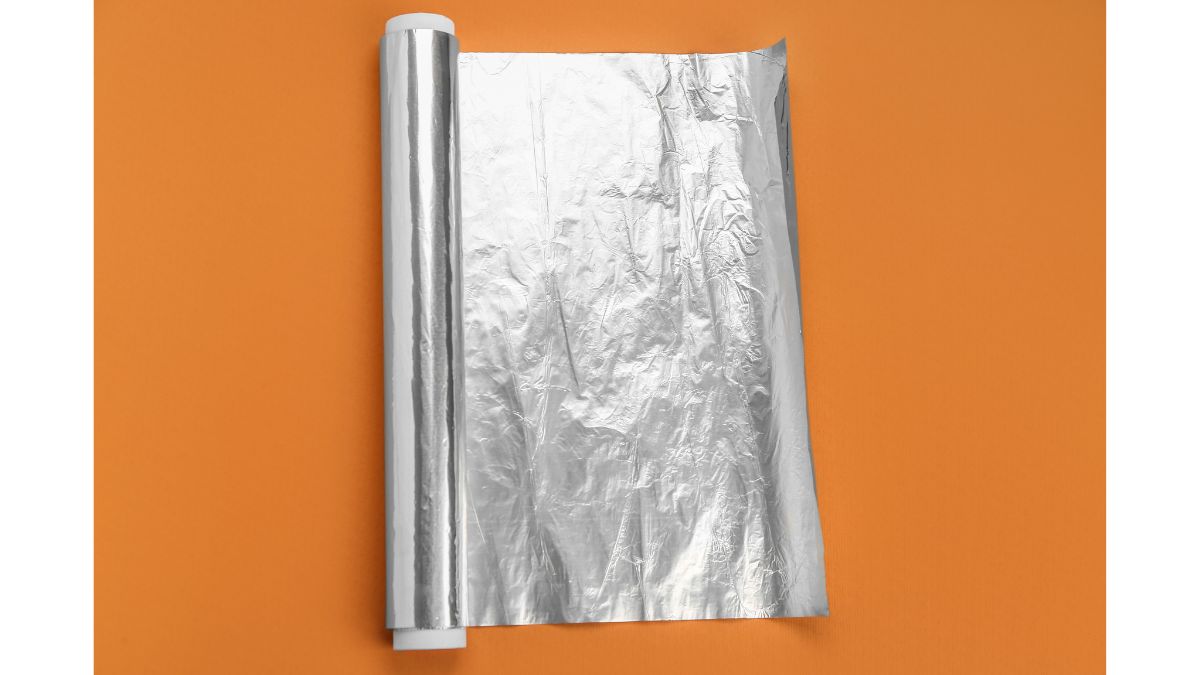- By Prerna Targhotra
- Tue, 16 Apr 2024 06:00 PM (IST)
- Source:JND
Health Hazards Of Aluminum Foil: The use of aluminium foil has been linked to serious conditions like Alzheimer's disease, Parkinson's disease, kidney problems, bone disorders and human breast cancer. Various reports suggest that high aluminium intake may be harmful to patients with bone diseases or renal problems. Aluminium is also known to reduce the growth rate of human brain cells. Aluminium is an important metal. It has some amazing properties such as being light in weight, conducting heat and electricity well, being non-reactive and not rust. All this makes it an important item in the kitchen. So where’s the problem? We don’t eat aluminium so how can it affect us?
In a conversation with Jagran English, Ms. Shlloka Joshii, Classical Hatha Yoga teacher, Diet & Lifestyle expert explains that aluminium is considered to be a neurotoxin. Aluminium salts can be absorbed by the gut and concentrated in various human tissues including bone, parathyroid, and the brain. This can lead to several health implications for the long term. For example, high concentrations of aluminium have been detected in brain tissues of patients with Alzheimer’s disease, a progressive disease.
Health Hazards Of Aluminum Foil
Aluminium transfers into the food that we eat when we use it to wrap food and cook in high temperatures. The findings of a research study in 2006 indicate that the aluminium content in some foods like meats, fish, onion and potatoes increased when they were heated in aluminium foil. It also showed that when foods with high or low pH levels or acidic foods which include citrus fruits like lemon, oranges, pineapples, strawberries, etc., tomatoes, potatoes, brinjal, and processed foods high in salt, fermented food, were cooked in contact with aluminium foil, there was a higher rate of aluminium leakage. French fries, garlic bread, cakes, muffins, pickles, tomato-based gravies, etc., are some food items that can increase the leaching of aluminium by up to four times.
Our bodies are quite effective in excreting small amounts of aluminium but larger amounts can cause problems. It is available everywhere because it is cheap and so easy to dispose of. It works well in holding moisture while cooking and transferring heat twice as quickly as regular metal. For all these advantages, it is commonly used in many culinary preparations to wrap meat, fish, bread, chicken, potatoes and vegetables too while grilling or oven cooking. This is a problem because aluminium can be harmful to health when used in very hot food.

Health Hazards Of Aluminum Foil (Image Credits: Canva)
Recent research conducted on the use of aluminium foil for cooking has raised concerns about its potential health implications. Aluminium salts can be absorbed by our gut and end up getting concentrated in various human tissues throughout our bodies, including our bones, parathyroid glands, and even our brains. This can lead to serious health issues.
Now you may ask, what are some factors that cause leaching? And when is using aluminium foils safe? The extent of aluminium migration into food depends on various factors, such as the duration of grilling, the temperature of heating, the composition of the food and the pH value, and the presence of other substances like organic acids and salt.
For instance, when food wrapped in aluminium foil is baked at lower temperatures below 160ºC, the leaching of aluminium is slower in comparison to baking at temperatures over 220ºC. Higher cooking temperatures stimulate the release of aluminium from the foil into the food.
Is Storing Food In Aluminium Dangerous?
Restaurants find it easy to pack food in aluminium foil containers because it holds the heat and keeps the food warm for a longer period. It is also cheap for them to use. However, the use of aluminium foil for food preparation and storage has been found to increase the aluminium content in the food. For example, after just one to three days of storage in the aluminium foils, the aluminium content in some food samples exceeded 60 mg/kg and 20 mg/kg, respectively.
Some foods are okay to be used in aluminium foil. These are curd rice and coconut rice but only for a very short time. But tomato rice, tamarind rice, pasta and other high-fat and salty foods should not be packed in aluminium foil.

Health Hazards Of Aluminum Foil (Image Credits: Canva)
Which Foods Are Safe To Wrap In Aluminium Foil?
Foods which are low in acid, dry in nature, non-salty, and low in fats are safe to be wrapped in aluminium foils or kept in aluminium containers. This includes regular chapatis, khakras, sandwiches and fried rice which are low in fat. In another study, researchers found that food stored in aluminium foils for two years showed a 13-21% increase in aluminium content throughout the entire storage period.
The study also showed that marinating and heating certain foods like salmon and mackerel in aluminium foil resulted in a significant increase in aluminium content, up to 20 times higher. The World Health Organization warns that consuming too much aluminium from aluminium foil, due to leaching, poses a serious health risk.
Ways To Reduce Aluminium Exposure
If you want to use it to wrap your chapatis or sandwiches in your lunch box, go ahead! Just remember not to use it for cooking or baking, especially foods that are acidic, spicy or salty at higher temperatures, that is when food is too hot.

Health Hazards Of Aluminum Foil (Image Credits: Canva)
Also, avoid storing food in aluminium foil. For acidic leftovers like tomato-based dishes or spicy and salty food, it's best to store them in glass containers instead of using aluminium foils. Glass containers are a safe option and keep food fresh.
One great option for cooking food is parchment paper. It's a non-toxic and non-stick paper that can withstand high temperatures which you can use safely to bake or cook foods that you would usually wrap in aluminium foil. Parchment paper can be safely used for baking and lining cake tins. It is harmless prevents cake or any other grilled food from sticking to the base and comes off very easily.

